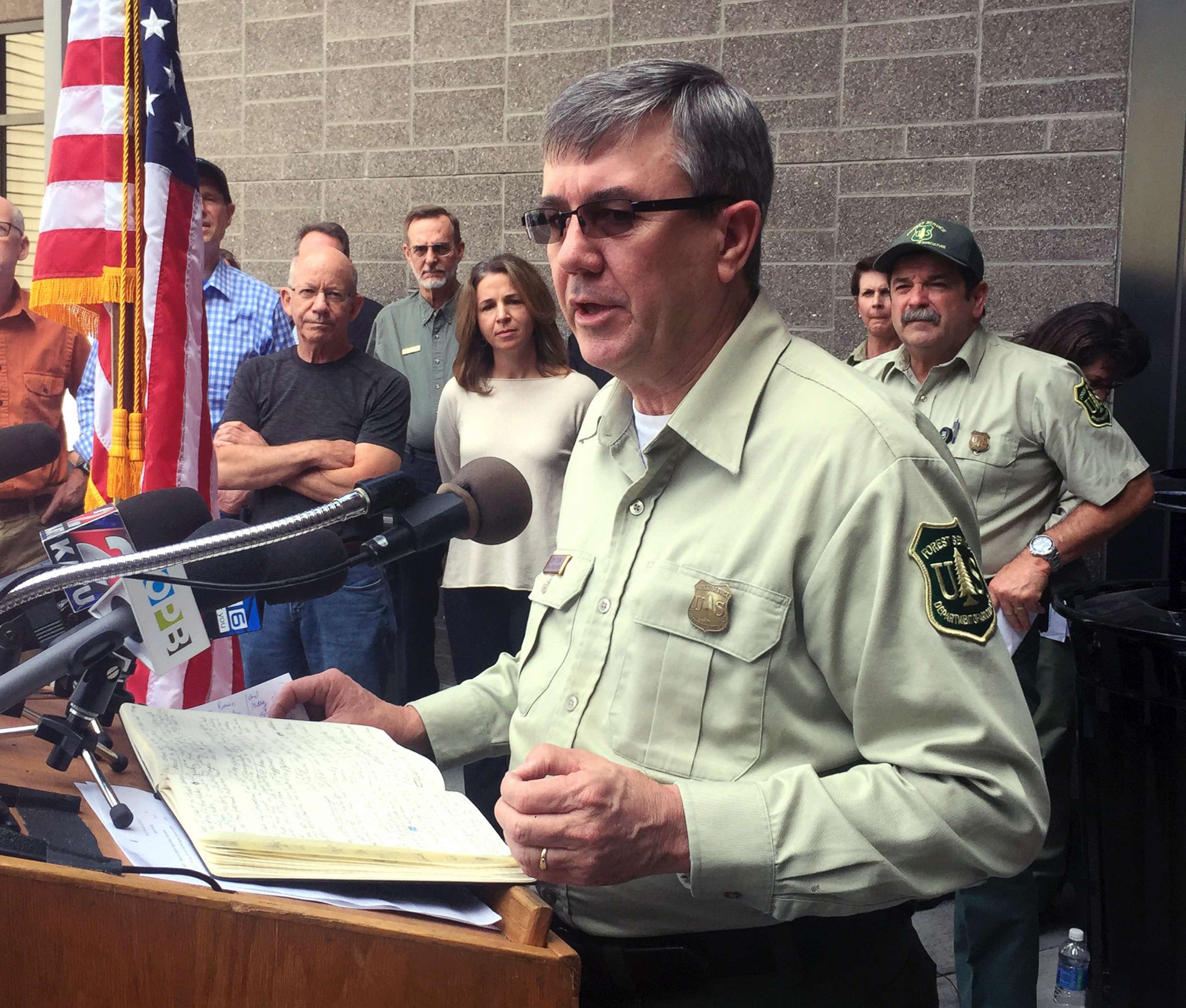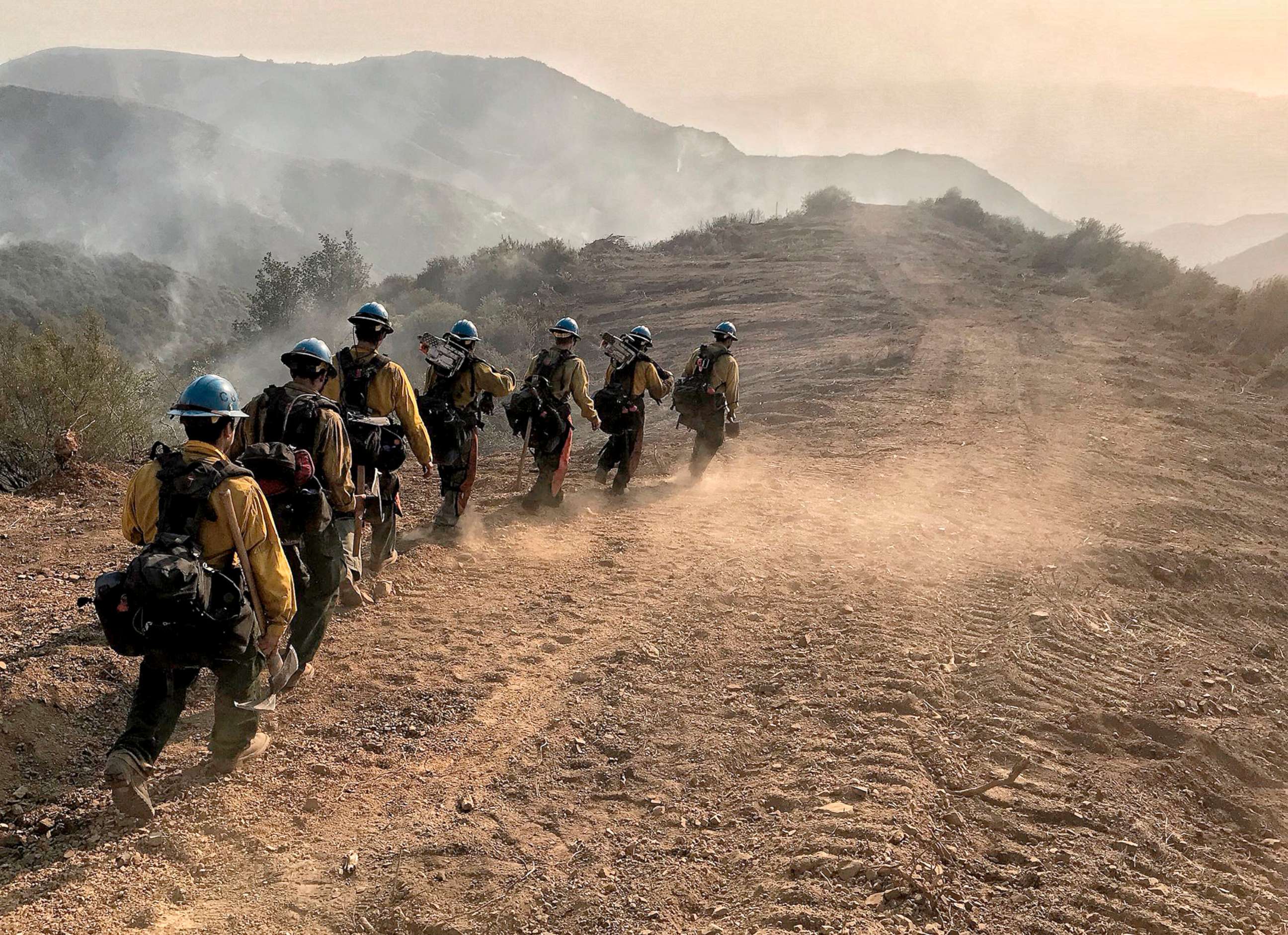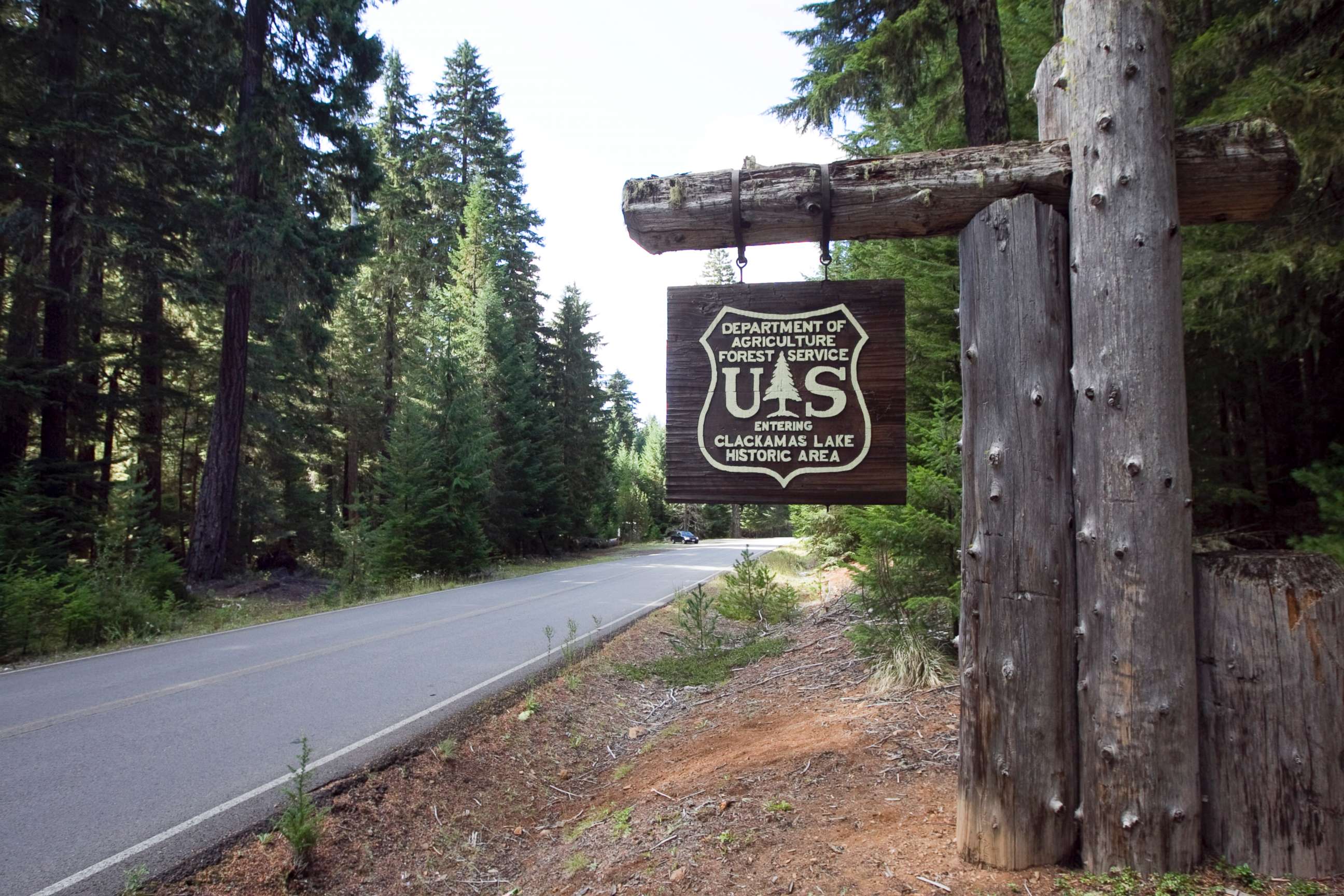Sexual harassment issues not over for Forest Service after chief's resignation
The Forest Service has been struggling with sexual harassment for years.
WASHINGTON, D.C. -- While celebrities continue to call attention to issues of sexual harassment and inequality through the #MeToo and #TimesUp movements, parts of the federal government are also trying to grapple with sexual and gender-based harassment.
The chief of the U.S. Forest Service resigned Wednesday, a week after the agency confirmed that he was under investigation for alleged sexual misconduct. The Forest Service confirmed the investigation into now-former Chief Tony Tooke after a PBS Newshour investigation interviewed multiple women who alleged that harassment within the service is an ongoing problem.

But the agency has been struggling to deal with issues related to harassment of women for years. Women have filed multiple class-action lawsuits against the Forest Service in its California region and in 2016 a congressional committee found that harassment and discrimination had been getting worse at the agency since 2008.
In a survey of Forest Service employees in the California region, 22 people said a supervisor threatened them or their career if they did not consent to sexual overtures, according to a report by the USDA inspector general.
Agriculture Secretary Sonny Perdue said he appointed another Forest Service official, Vicki Christiansen, to step in as interim chief Thursday, according to an email sent to employees and shared with ABC News. In the email, Perdue said Christiansen would help implement the recommendations in the watchdog report but that the agency still faces challenges in fostering a respectful workplace.
Women interviewed for the PBS report gave examples of harassment such as being told to quit, unwanted sexual comments, bullying like having rocks put in their pack and incidents where they were sexually assaulted while on assignment. In one example a female firefighter said she was hit by a falling tree after a supervisor did not call out a warning. She told PBS the supervisor did not care if she got hurt.
Denice Rice has worked as a Forest Service firefighter in California for more than 20 years. She was featured in a 2016 Huffington Post investigation on harassment in the Forest Service and National Park Service. She later testified at a House Oversight Committee hearing on the issue.
Rice testified that a supervisor harassed and assaulted her, including asking her for sex and following her into the bathroom or to her car. She said that after she filed a formal complaint, she was retaliated against and details of the complaint were discussed publicly with other firefighters while she was present. That supervisor was ultimately allowed to retire instead of being fired, according to testimony from the hearing.
There are a few reasons that it's especially hard to counteract harassment of women in agencies like the Forest Service. Kathryn Clancy, an anthropologist who studies workplace climates in the scientific fields, said factors like a male-dominated workplace or working in a field typically associated with men can make it more likely that women will face harassment or even assault.
Rice said many women would quit firefighting roles because of "the boys club" atmosphere.
"Women in isolated workstations have to navigate “the boys club” which can be hostile, intimidating and unwelcoming, and women tend to quit or move on. Some can do well but others exposed to these oppressive conditions will not report, and the bad behavior culture persists and is enhanced because they feel a sense of reward, proud that they have been able to push women out and can boast they have no women on the crew," Rice said in her 2016 testimony.
Clancy also emphasized that most people think or harassment as unwanted sexual advances or assault but that only represents a small percentage. The vast majority of gender-based harassment is derogatory comments, actions, or bullying toward women or other minorities in the workplace. She said harassing behavior can escalate and that for women it's often a "danger sign" that worse behavior could be on the horizon.
Clancy is an associate professor of anthropology at the University of Illinois and recently testified in a congressional hearing on sexual harassment in the sciences.
Another factor that makes it harder to stop harassment at the Forest Service is that many employees work at regional offices or in the field while accountability measures like the agency's inspector general are at USDA headquarters in Washington, D.C.
Clancy has researched the culture at field sites for scientific research and has said the working in isolation can contribute to bad behavior because of attitudes that "what happens in the field stays in the field."

About 35 percent of Forest Service employees are women, but the number is much lower among firefighters, which can make up almost half of the agency's workforce during the busy part of the year. In July of last year, only 13 percent of the almost 19,500 firefighters working for the Forest Service were women.
Many of those firefighters are assigned to crews of 18-20 people and work in the field to put out wildfires and work to prevent fires on federal lands, according to the agency's website.
An interim report from the Agriculture Department's inspector general report found that the Forest Service has made progress but still has problems, including how it investigates claims of sexual harassment. The review found that the agency uses only internal investigators, which has led to a lack of trust that allegations will be investigated fairly. The inspector general recommended that the agency initiate a one year trial period using only external investigators, which the service agreed to do.
The Forest Service has also assigned a "Senior Advisor" and employee advisory group to focus on work environment, according to a letter from Tooke to department employees obtained by ABC News. The agency did not make anyone available for an interview Friday but said in a statement it is learning from the interim report.
"This information will inform our actions, in real time, to continue to improve how we take care of persons who have been harassed, hold offenders accountable, provide training, continue to monitor, and improve the work environment to eliminate all forms of harassment," spokeswoman Babete Anderson said in a statement. "These are critical issues that the Forest Service must continue to take on to increase our efforts to protect our fellow employees so they know they can speak up and speak out, without any fear of retaliation or reprisal."

But members of Congress said the report shows that more changes are needed to improve how USDA and Forest Service handle harassment.
The inspector general is expected to release a full report in April, according to Rep. Jackie Speier, D- Calif., who requested an investigation in 2014. Speier said in a statement the USDA and Forest Service are "a long way away from curing this cultural rot."
Sen. Steve Daines, R-Mont., also announced plans to hold a hearing on harassment in the Forest Service, saying in a statement he plans to "use every tool to ensure all bad actors are held accountable." Daines is a member of multiple committees with jurisdiction over the Forest Service and has not yet set a date for the hearing.




